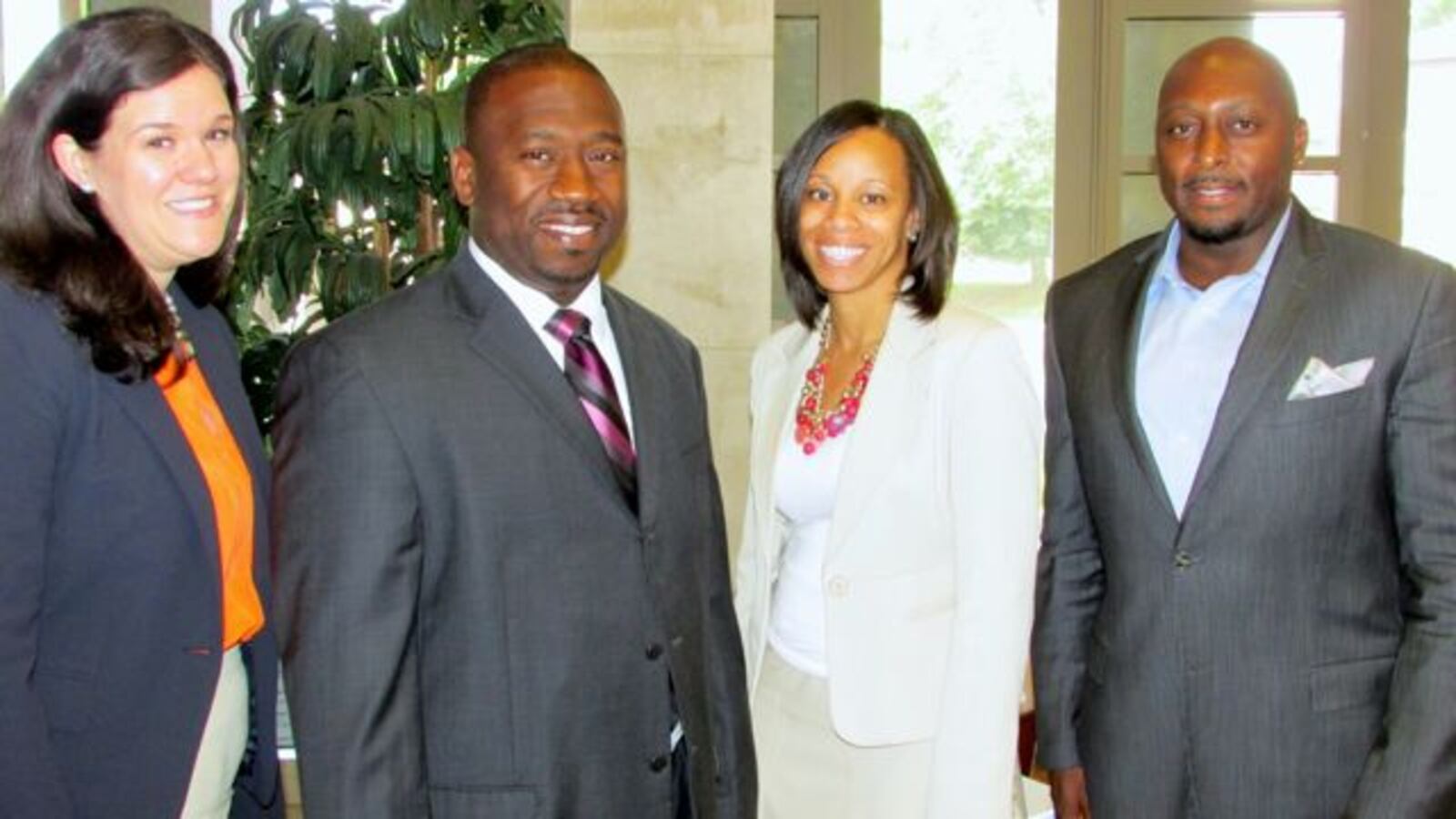A charter school developer, an intelligence analyst and an Indianapolis Public Schools principal each get $100,000 and a year off to work on ideas for improving IPS schools.
Last month, The Mind Trust and Mayor Greg Ballard’s office announced they would award three fellowships to spur creation of innovative school designs that IPS could choose from when it considers how to turn around its lowest scoring schools. More than 200 came to informational sessions and 63 applied.
Nine semi-finalists were interviewed and the winners were selected from among four finalists.
The winners were announced today. They are:
- Earl Martin Phalen and Marlon Llewellyn, who will jointly work to adapt the blended learning model used in the Phalen Leadership Academy charter school.
- Heather Tsavaris, who was inspired by her work in counter terrorism to create a middle school designed to encourage students to start their own businesses as an alternative to more troubled lifestyles.
- Lauren Franklin, who as principal helped turn around IPS School 56 from an F to an A. Franklin wants to expand the Montessori program from School 56 so it can be used for a K to 12 school.
Here’s more on the plans each hopes to develop:
A blended learning school
Phalen is a one-time foster child and former Harvard Law School classmate of President Obama who founded an after school mentoring program in Boston. He came to Indiana in 2009 after being selected a Mind Trust “education entrepreneur fellow.”
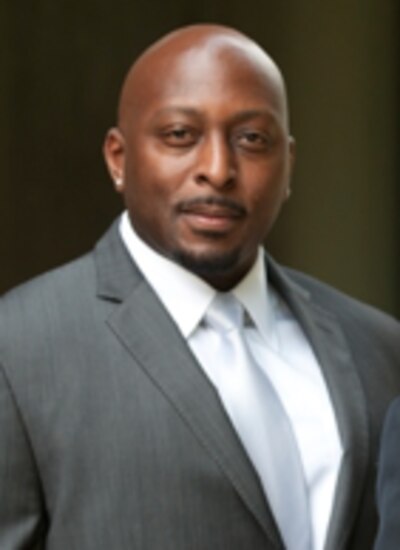
From that fellowship, Phalen invented Summer Advantage, a program that aims to help low income children advance, rather than backslide, during summer break. Building on the success of that program, he launched the Phalen Learning Academy and has plans to open nine more Phalen charter schools.
But partnering with Llewellyn, he will aim to adapt the Phalen instructional program so it can be used for a traditional public school.
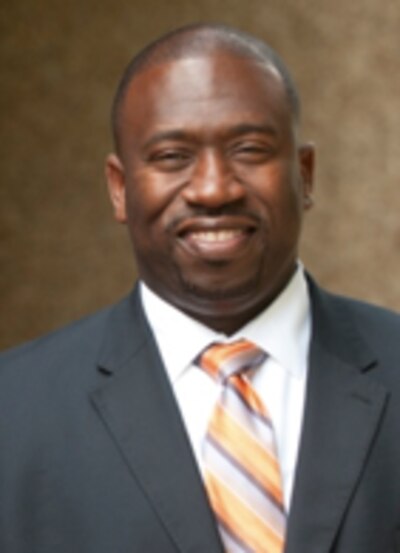
“Starting a school up and collaborating with an existing school are two different experiences and skill sets,” he said.
Llewellyn formerly worked in IPS, followed by stints at Fountain Square Academy charter school and working for Tindley Schools, the charter school group, as a dean at Arlington High School, a former IPS school it manages in state takeover.
Blended learning programs teach students through both traditional teacher-led activities and using computer software. Llewellyn in the past was a Summer Advantage principal, overseeing Phalen’s summer program.
“I’ve just seen the blended learning model at work and what Summer Advantage did was truly amazing,” he said.
A K to 12 Montessori school
School 56 is a magnet school, which generally means better performance in IPS. But Franklin’s school is unusually high poverty for a magnet: 84 percent of students come from families poor enough to qualify for free or reduced price lunch. Plus, more than a third of the students receive special education services.
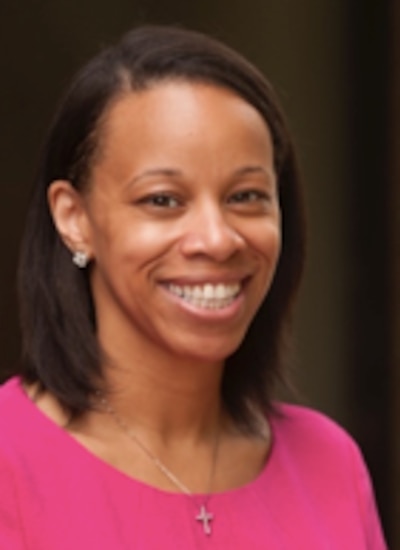
Despite those challenges, the school made a 19 point jump in its ISTEP passing rate over Franklin’s four years at the school, exceeding the state average last year at 78 percent.
Franklin has two ideas she wants to explore: keeping students together for all of their K to 12 schooling experience and expanding Montessori instruction through high school grades.
“There is a family environment there,” she said of the K to 8 student body at School 56. “Why not keep them within the same environment? This is where they feel safe and people meet their needs.”
Although there are few examples of Montessori high schools, Franklin believes the philosophy can be adapted to go beyond middle school grades.
“if we really talk about what’s best for students and how they acquire knowledge, then you are looking at a new way of thinking and teaching,” she said.
Franklin, who attended IPS as a student and has many friends and relatives who go to IPS schools, said she was inspired by the opportunity she saw in the fellowship to improve district schools. Much of her approach, she said, is about building a culture where educators give their all to help kids achieve.
“This is deeply personal for me,” she said. “It’s based on my observations of what kids really need.”
An entrepreneurial middle school
Tsavaris’ story is easily the most unusual of the three winners.
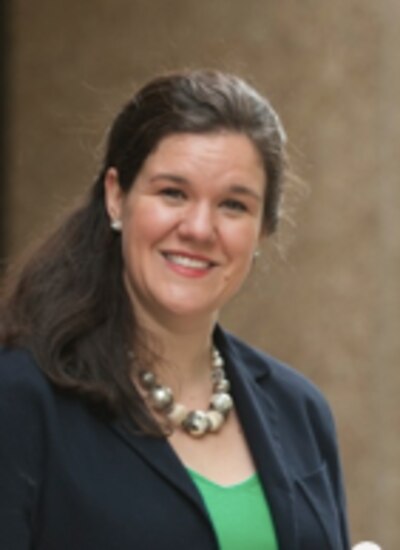
She is not an educator. She has no indiana connections. And the Ohio native worked for a decade as an intelligence officer for the U.S. government.
In that role, she worked on counter terrorism, including a stint in the Netherlands. There she worked to understand how terrorist groups try to appeal to minority Turkish and Morrocan communities.
Oftentimes, it was about offering young people a way out of lives that felt like they were leading nowhere.
“They felt a lack of empowerment,” she said. “Terrorist groups had a message of empowerment: ‘You can make a difference, you can be important and you can do something.’ It changed something for these kids.”
But at the other end of the spectrum were those who went on to succeed despite the challenges of living as minorities in a foreign country. Many of them were entrepreneurs. They empowered themselves through good ideas and hard work.
“They were the secret heroes in the communities, the entrepreneurs,” she said. “They changed themselves and, in the process, changed the community.”
It made Tsavaris think of her own father, a Greek immigrant who came to the U.S. at age 15 unable to speak English and now is a successful restauranteur.
“So much of what we are as a country is about problem solving and self reliance,” she said. “This is such an amazing opportunity to bring entrepreneurial thinking to kids.”
Tsavaris acknowledges her concept is unfinished. In fact, she asked the fellowship committee for permission to develop her idea over two years, while the others are aiming to be ready to start managing schools in 2015.
She thinks middle school is the right age to target and hopes to adapt an entrepreneurial training program she developed for kids to be the basis of the school’s curriculum.
“I know I have a lot of work to do,” she said. “I’ve not been in a traditional school. I have a lot to learn. Part of that is finding the right team.”


